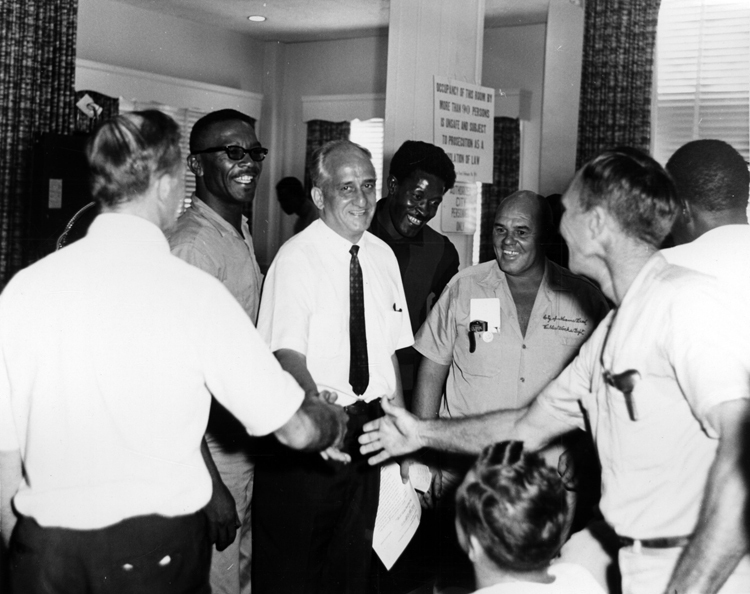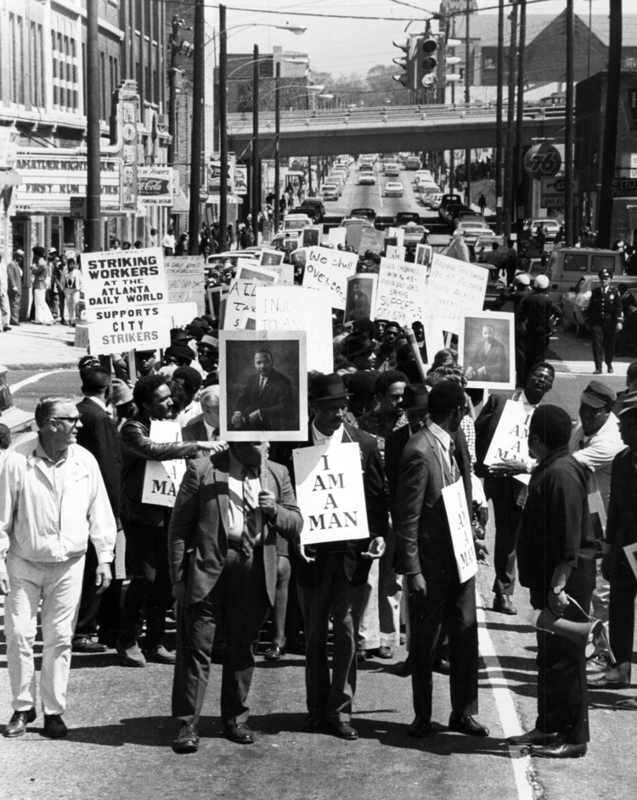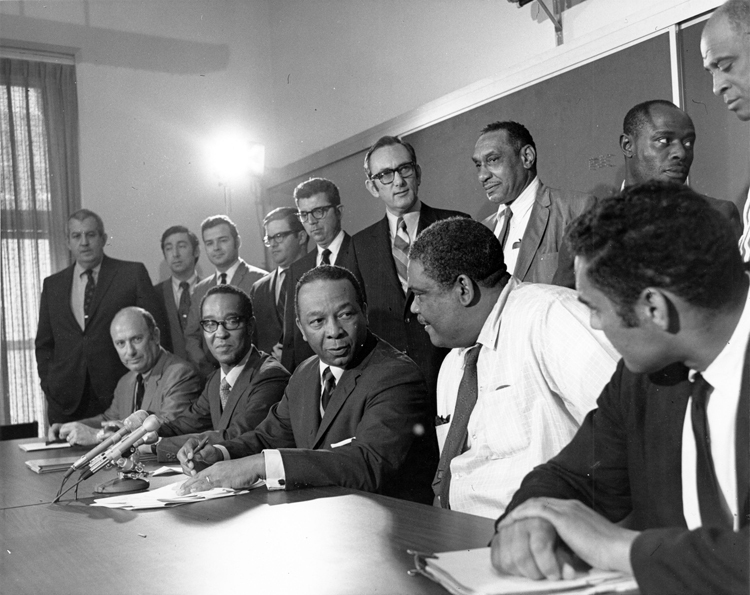Impact on the South, 1968-1970
The success of the sanitation strike in Memphis inspired thousands of other city employees from around the Southern United States to stand up and demand dignity, respect and more importantly, collective bargaining in their workplace. The organizing drive in the South not only included sanitation workers but hospital and school employees, social workers and bus drivers.
Despite right-to-work laws and anti-union sentiment in the South, new AFSCME locals were organized in Baltimore and Charlotte, North Carolina. Local 1733 became the largest union in Memphis, and in Miami, sanitation workers gained one of the best union contracts in the nation.

Baltimore Police Strike
Members of AFSCME Local 1195 Baltimore, Maryland Police Union strike in 1969. (Date: 1969)

Success in Miami Beach
Striking workers congratulate AFSCME Field Staff Director P.J. Ciampa following the union agreement with the city for a representation election. City employees in Miami Beach had struck for recognition of Local 1544 in 1968. (Creator: Ardmore Studio; Date: 1968)

Miami Beach Strikes
Miami Beach city employees protest for union recognition of AFSCME Local 1544 in 1968. (Creator: Ted Press; Date: 1968)

Atlanta Strikes
In September 1968, members of AFSCME Local 850, Atlanta, Georgia Maintenance & Sanitation Department Employees, struck for higher wages. (Date: 1968-09)

Atlanta Protests
Members of Atlanta Local 1644 march in protest during the 1970 sanitation workers' strike. (Date: 1970)

Washington Settlement
Washington, D.C. Mayor, Walter Washington, and Local 1 Chapter Chairman of Sanitary Engineering, Thurmond Hayes, sign the contract that meant 35 cents an hour for D.C. sanitation workers in May 1970. (Creator: Castor, Tom; Date: 1970-05)

Washington Strikes
Strikers wear picket signs during AFSCME Local 1's sanitation workers' strike in Washington, D.C., May 1970. (Creator: Castor, Tom; Date: 1970-05)
